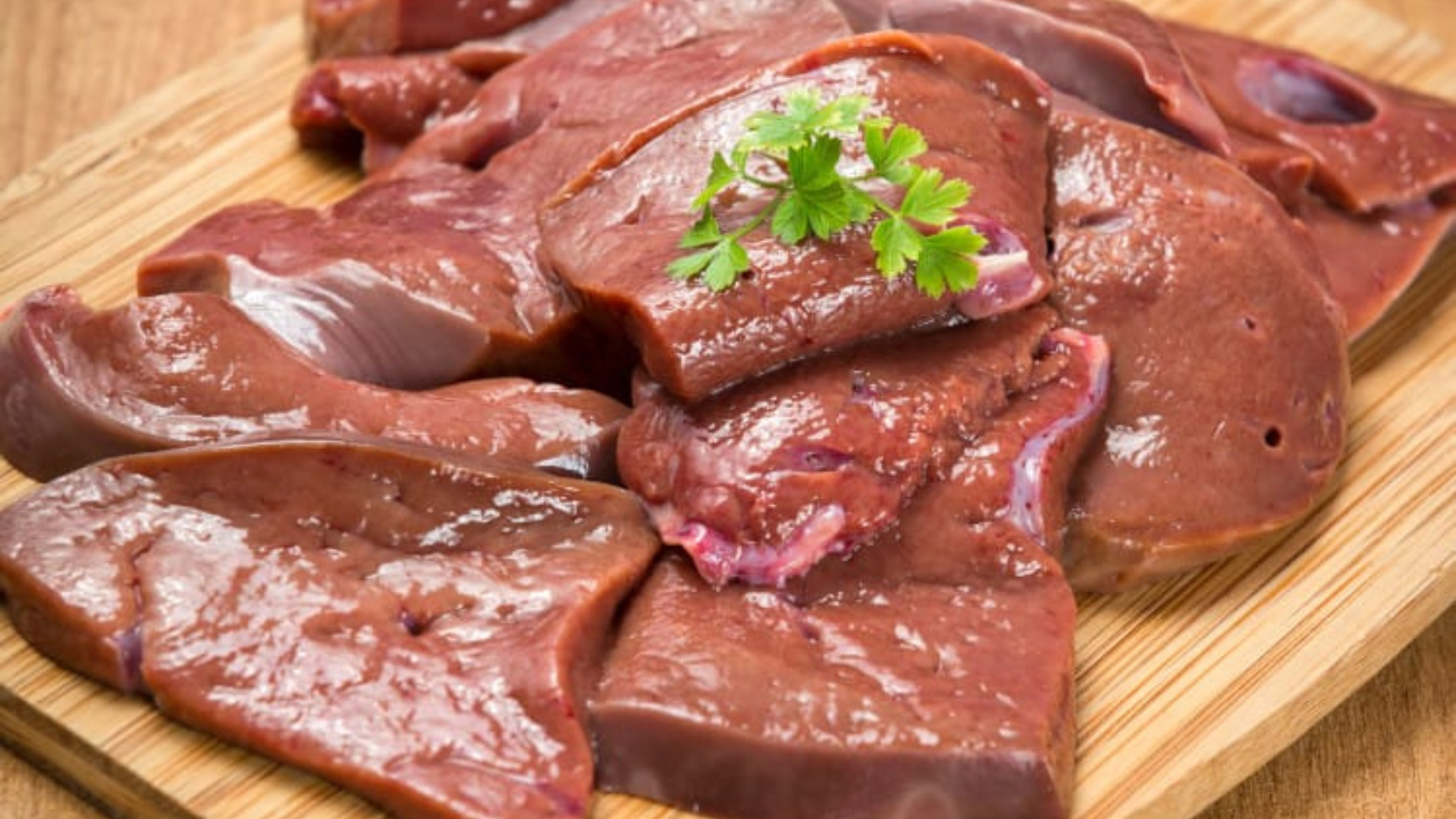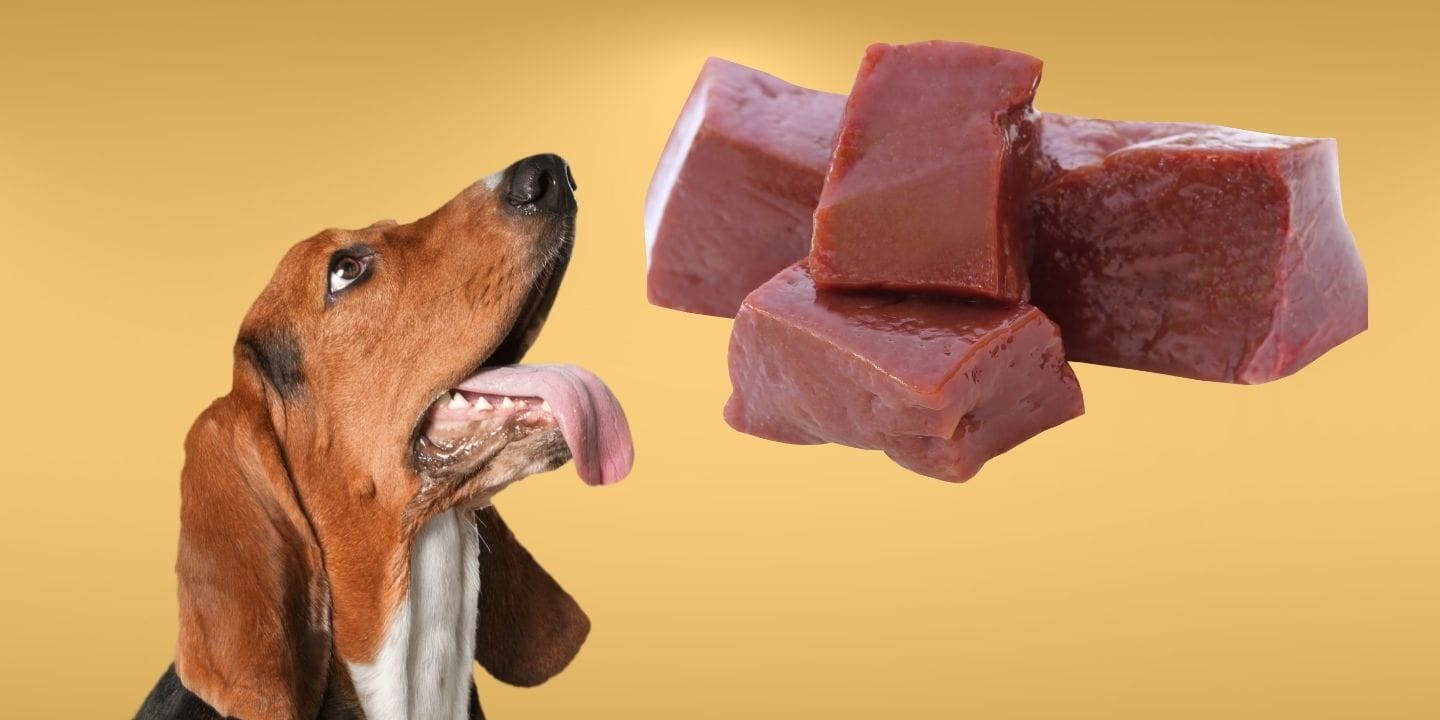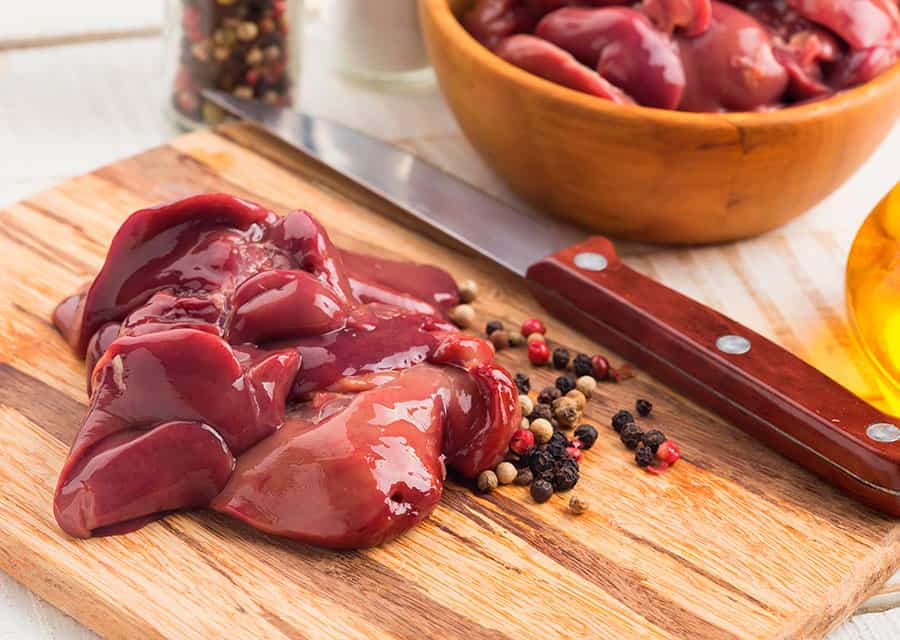Beef liver is a nutritious food that many dog owners choose to include in their pet's diet. However, cooking beef liver for dogs can be a bit challenging, as it has a strong flavor and texture that some dogs may not enjoy. If you're looking for tips on how to cook beef liver for your furry friend, you've come to the right place.

One of the most important things to keep in mind when cooking beef liver for dogs is to make sure it is properly prepared. This means removing any visible fat or connective tissue, as well as washing it thoroughly to remove any bacteria or contaminants. It is also important to cook the liver thoroughly to ensure that it is safe for your dog to eat.
There are many different ways to prepare beef liver for dogs, depending on your pet's preferences and dietary needs. Some dog owners prefer to cook it in a pan with a bit of oil or butter, while others prefer to bake it in the oven. Regardless of the method you choose, it is important to monitor the liver closely to ensure that it is not overcooked or undercooked, as this can affect its flavor and texture.

Benefits of Beef Liver for Dogs
Beef liver is a highly nutritious and beneficial food for dogs. It is a nutrient-rich organ meat that is packed with essential nutrients, including vitamins, minerals, protein, and iron. Here are some of the benefits of feeding beef liver to your furry friend:
Rich in Vitamin A
Beef liver is a great source of vitamin A, which is an essential nutrient for dogs. Vitamin A is important for maintaining healthy vision, skin, and coat. It also supports the immune system and helps with bone growth and development.
High in Iron
Beef liver is also a good source of iron, which is essential for the production of hemoglobin in red blood cells. Hemoglobin carries oxygen throughout the body, and a deficiency in iron can lead to anemia. Feeding your dog beef liver can help prevent anemia and promote healthy blood flow.
Protein-Packed
Beef liver is a great source of protein, which is essential for building and repairing tissues in the body. Protein also helps with muscle growth and maintenance, and it supports the immune system. Feeding your dog beef liver can help ensure that they are getting enough protein in their diet.
Nutrient-Dense
Beef liver is a nutrient-dense food that is packed with vitamins and minerals. In addition to vitamin A and iron, beef liver contains vitamins B12, B6, and C, as well as minerals like copper, zinc, and selenium. Feeding your dog beef liver can help ensure that they are getting a wide range of essential nutrients in their diet.
Overall, beef liver is a nutritious and delicious treat that can provide your dog with a variety of essential nutrients. When cooked properly, beef liver can be a healthy addition to your dog's diet.
Understanding Beef Liver Nutrition
Beef liver is a nutrient-rich organ meat that is considered a superfood for dogs. It is packed with essential nutrients that are vital for the overall health and well-being of your furry friend. In this section, we will explore the nutritional benefits of beef liver and how it can benefit your dog's health.
Vitamin A and Iron Content
Beef liver is an excellent source of vitamin A and iron. Vitamin A is essential for maintaining healthy vision, skin, and coat in dogs. It also helps support the immune system and promotes healthy growth and development. Iron is crucial for the production of red blood cells, which carry oxygen throughout the body. A deficiency in iron can lead to anemia and other health problems.
Protein and Essential Nutrients
Beef liver is also a great source of protein and essential nutrients such as zinc, copper, and B vitamins. Protein is essential for building and repairing tissues in the body, and it is particularly important for growing puppies and active dogs. Zinc and copper are essential minerals that help support the immune system, promote healthy skin and coat, and aid in wound healing. B vitamins are important for energy metabolism and the proper functioning of the nervous system.
Vitamins and Minerals Balance
Beef liver is a nutrient-dense food that contains a balance of vitamins and minerals that are essential for your dog's health. It is important to note that while beef liver is a highly nutritious food, it should not be the sole source of your dog's diet. A balanced diet that includes a variety of proteins, fruits, and vegetables is essential for meeting all of your dog's nutritional needs.
In conclusion, beef liver is a highly nutritional food that provides a wide range of essential nutrients for dogs. It is a great addition to any dog's diet, but it should be fed in moderation to avoid overconsumption of certain vitamins and minerals. Consult with your veterinarian to determine the appropriate amount of beef liver to feed your dog based on their individual nutritional needs.
Incorporating Liver Into Your Dog's Diet
Liver is a nutrient-rich food that can provide a range of benefits to your dog's diet. However, as with any food, moderation is key. Here are some tips for incorporating liver into your dog's diet in a healthy and balanced way.
Moderation is Key
While liver is a nutritious food, it should be fed to your dog in moderation. Too much liver can cause vitamin A toxicity, which can result in bone and joint pain, dry skin, and even death in severe cases. Experts recommend that liver should make up no more than 10% of your dog's diet.
Dietary Balance and Portion Size
In order to maintain a well-balanced diet, it's important to consider the portion size of liver you feed your dog. Experts suggest that liver should be fed as an occasional treat, no more than once a week. When feeding liver, it's important to adjust your dog's regular food portions accordingly, so that they don't consume too many calories or nutrients.
It's also important to consider the overall balance of your dog's diet. Liver is high in protein and vitamin A, but it doesn't provide all of the nutrients that your dog needs. Be sure to feed your dog a well-balanced diet that includes a variety of protein sources, carbohydrates, and healthy fats.
When incorporating liver into your dog's diet, it's important to consider their age and overall health. Puppies and dogs with liver or kidney disease may require special dietary considerations. Be sure to consult with your veterinarian to determine the appropriate portion sizes and feeding frequency for your dog.
By following these guidelines, you can safely incorporate liver into your dog's diet as a healthy and nutritious treat.
How to Cook Beef Liver for Dogs

Beef liver is a great source of protein, vitamins, and minerals for dogs. However, cooking it properly is important to ensure that it is safe and healthy for your furry friend. Here are three methods for cooking beef liver for dogs:
Boiling Beef Liver
Boiling beef liver is a simple and easy way to cook it for your dog. Start by cutting the liver into small pieces and placing it in a pot of water. Bring the water to a boil and then reduce the heat to a simmer. Let the liver simmer for about 15 minutes, or until it is fully cooked. Be sure to let the liver cool before serving it to your dog.
Baking Beef Liver
Baking beef liver is another great option for cooking it for your dog. Preheat your oven to 350 °F. Cut the liver into small pieces and place them on a baking sheet. Bake the liver in the oven for about 20 minutes, or until it is fully cooked. Be sure to let the liver cool before serving it to your dog.
Avoiding Overcooking
Overcooking beef liver can cause it to become tough and dry, making it less appealing to your dog. To avoid overcooking, it is important to monitor the temperature of the liver while cooking it. The internal temperature of the liver should reach at least 160 °F to ensure that it is fully cooked. Use a meat thermometer to check the temperature and remove the liver from heat once it reaches the appropriate temperature.
In summary, cooking beef liver for dogs is easy and simple. Boiling and baking are two great methods for cooking it, and it is important to avoid overcooking to ensure that it is safe and appetizing for your furry friend.
Preparation and Safety Tips
Choosing High-Quality Liver
When selecting beef liver for your dog, it's important to choose high-quality, fresh liver. Look for liver that is deep red or brown in color and has a smooth texture. Avoid liver that is discolored, has a strong odor, or feels slimy to the touch.
Opt for liver from grass-fed, pasture-raised beef if possible, as it tends to be higher in nutrients and lower in toxins than liver from conventionally raised cattle.
Cleaning and Handling
Before cooking, rinse the liver thoroughly under running water to remove any dirt or debris. Use a sharp knife to trim away any visible fat or connective tissue.
To prevent the spread of bacteria and parasites, it's important to handle the liver with clean hands and utensils. Wash your hands and any surfaces that come into contact with the liver with hot, soapy water before and after handling.
Cooking to Safe Temperatures
Cooking liver to a safe temperature is crucial to ensure that any harmful bacteria or parasites are destroyed. Raw liver can contain salmonella, E. coli, and other pathogens that can make your dog sick.
To ensure that the liver is cooked through, use a meat thermometer to check the internal temperature. The USDA recommends cooking beef liver to an internal temperature of 160 °F (71 °C).
If you're not planning to serve the liver immediately, it's important to store it properly. Freeze the liver in an airtight container or freezer bag for up to six months. Thaw frozen liver in the refrigerator or microwave before cooking.
By following these preparation and safety tips, you can ensure that your dog's beef liver is not only delicious but also safe to eat.
Liver Treat Recipes for Dogs
If you're looking for a healthy and tasty treat to give your dog, beef liver is a great option. Not only is it packed with nutrients like iron and vitamin A, but it's also low in fat and calories. Here are two simple liver treat recipes that your furry friend is sure to love.
Simple Boiled Liver Treats
To make these treats, all you need is some beef liver and water. Start by cutting the liver into bite-sized chunks and placing them in a pot of boiling water. Let the liver boil for about 5 minutes, or until it's cooked through.
Once the liver is cooked, remove it from the water and let it cool. You can serve the liver chunks as is, or you can cut them into even smaller pieces for a bite-sized snack.
Homemade Baked Liver Snacks
For a slightly more involved recipe, try making these homemade baked liver snacks. You'll need:
- 1 pound beef liver
- 1 cup flour
- 1 egg
- 1/4 cup water
Start by preheating your oven to 350 °F. Then, cut the liver into small pieces and blend it in a food processor until it's smooth. Add the flour, egg, and water to the liver puree and mix until you have a smooth batter.
Spread the batter out on a baking sheet and bake for 20-25 minutes, or until the treats are golden brown. Once they're done, let them cool before serving them to your pup.
Both of these liver treat recipes are easy to make and provide your dog with a healthy and delicious snack. Just be sure to feed liver treats in moderation, as too much liver can cause digestive upset.

Potential Health Concerns
While beef liver is a nutritious food for dogs, there are some potential health concerns that pet owners should be aware of.
Avoiding Vitamin A Toxicity
Beef liver is high in vitamin A, which is essential for a dog's vision, immune system, and bone growth. However, consuming too much vitamin A can lead to hypervitaminosis A, also known as vitamin A toxicity.
Symptoms of vitamin A toxicity in dogs include bone deformities, weakened muscles, and digestive issues. To avoid this, pet owners should feed their dogs beef liver in moderation and ensure that they are meeting their dog's nutritional needs with a balanced diet.
Monitoring for Digestive Issues
Some dogs may experience digestive issues after consuming beef liver. This can include vomiting, diarrhea, and constipation.
To prevent digestive issues, pet owners should introduce beef liver slowly into their dog's diet and monitor their dog's reaction. Additionally, it is important to ensure that the beef liver is cooked thoroughly to avoid any potential bacterial contamination.
Overall, while beef liver can provide many nutritional benefits to dogs, pet owners should be aware of the potential health concerns and take the necessary precautions to ensure their dog's health and wellbeing.
Consulting with a Veterinarian
Before adding beef liver to your dog's diet, it is important to consult with a veterinarian. A veterinarian can help determine if beef liver is appropriate for your dog's nutritional needs and digestive capabilities.
Liver is a nutrient-dense food that contains high levels of vitamins and minerals, including vitamin A, iron, and copper. However, excessive consumption of liver can lead to vitamin A toxicity, which can be harmful to dogs.
A veterinarian can recommend the appropriate amount of liver to include in your dog's diet based on their individual needs. They can also help ensure that liver is not the sole source of nutrition in your dog's diet and that it is balanced with other foods to meet their nutritional needs.
Additionally, a veterinarian can help monitor your dog's digestion and overall health when introducing new foods to their diet. They can provide guidance on how to introduce beef liver gradually and monitor for any adverse reactions.
In summary, consulting with a veterinarian is an important step when considering adding beef liver to your dog's diet. They can provide valuable guidance on the appropriate amount of liver to include and ensure that it is balanced with other foods to meet your dog's nutritional needs.
Conclusion
Incorporating beef liver into your dog's diet can provide them with essential nutrients and contribute to their overall health and vitality. By following proper preparation and serving guidelines, you can safely introduce this nutritious organ meat to your furry friend's meals.

Frequently Asked Questions
- How long should beef liver be boiled to ensure it is safe for dogs?
- Beef liver should be boiled for at least 10-15 minutes to ensure it is safe for dogs to consume. This will help to kill any harmful bacteria that may be present in the liver.
- What are the steps to cook beef liver for dogs using an oven?
- To cook beef liver for dogs using an oven, first preheat the oven to 350 °F. Then, slice the beef liver into thin pieces and place them on a baking sheet lined with parchment paper. Bake the liver for 10-15 minutes or until it is fully cooked. Allow the liver to cool before serving it to your dog.
- Should dogs be given beef liver in a raw or cooked form for optimal health?
- It is recommended to feed dogs cooked beef liver as it can be easier for them to digest. Raw beef liver may contain harmful bacteria that can cause illness in dogs. Cooking the liver will also help to break down any tough fibers, making it easier for your dog to chew and digest.
- Can feeding liver to dogs on a daily basis have negative effects?
- Feeding liver to dogs on a daily basis can lead to an excess of certain vitamins and minerals, such as vitamin A and copper. This can cause health problems in dogs, including bone and joint issues. It is recommended to feed liver to dogs in moderation, no more than once or twice a week.
- What is the proper way to prepare raw liver for canine consumption?
- If you choose to feed your dog raw liver, it is important to handle it properly to avoid the risk of bacterial contamination. First, make sure the liver is fresh and has been stored properly. Then, rinse the liver under cold water and pat it dry with a clean towel. Finally, slice the liver into small pieces and serve it to your dog.
- Is it necessary to wash beef liver before cooking it for dog meals?
- Yes, it is recommended to rinse beef liver under cold water before cooking it for dog meals. This will help to remove any dirt or debris that may be present on the liver. It is also important to handle the liver properly to avoid the risk of bacterial contamination.




